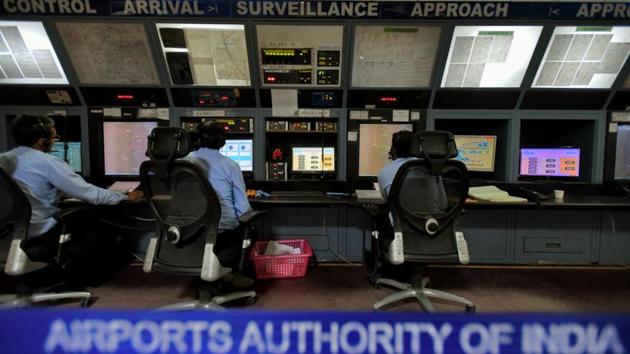DGCA proposes alcohol test for air traffic controllers, aircraft engineers
Under a proposal of the Directorate General of Civil Aviation (DGCA) engineers working at the airside, air traffic controllers and drivers of passenger bridges and buses will also be subjected to breath analyser test soon.
India’s civil aviation regulator has proposed that engineers working at the airside, air traffic controllers and drivers of passenger bridges and buses will also be subjected to breath analyser test soon. Until now only aircraft pilots and crew had to take the test.

“Provisions of this Civil Aviation Requirements are applicable to the Organisations engaged in the provision of Air Traffic Control Services, Aerodrome Management, Aircraft Maintenance and Repair, Ground Handling Agency, Aircraft Operation,” says a draft proposal of the Directorate General of Civil Aviation (DGCA).
The DGCA has sought comments from stakeholders till September 5 following which it will make the rule mandatory.
“The organisations shall ensure that at least 10% individuals employed in their respective organisations as engaged in such functions are randomly subjected to breath-analyser examination on daily basis. Aerodrome management shall also be responsible for conduct of BA test on the personnel of the ground handling agency and aerodrome operational personnel,” the draft proposal reads.
Also read: In 20 days, aviation regulator suspends 12 pilots for a year
Breathe analyser (BA) test is used to detect if crew is tipsy while reporting for work. In January-October 2018, the BA violation per 10,000 (flight) departures was 2.01. In 2015-2017, the figures were 2.57, 2.44 and 2.46, respectively.
As per the recommendations of the International Civil Aviation Organisation, the level of blood alcohol compatible (BAC) with safe flying is ‘zero’. For the recently introduced category, the DGCA has proposed the limit to remain zero.
Also read: Major airports asked to carry runway friction test every week
“It is a well-known fact that alcohol is a sedative, hypnotic, and addicting drug. It impairs judgment and leads to behavior that can easily contribute to or cause accidents. Even when the blood alcohol levels are zero in the body, there could be some effect of hangover, which is mainly due to congeners. A hangover effect produced by alcoholic beverages after the acute intoxication has worn off, may be just as dangerous as the intoxication itself,” the DGCA has said.






